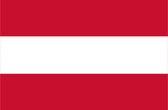
Call 0330 880 3600 Calls may be monitored or recorded. Opening Times.
- TRAVEL INSURANCE
- COVID-19 COVER
- More Options
- Help & Advice
- Existing Customers

Call 0330 880 3600 Calls may be monitored or recorded. Opening Times.

Need help?
UK Customer Services0330 880 3600*
Open Monday to Friday 9:00am to 6pm, Saturday 8:30am to 4pm and closed Sundays.
*Calls are recorded for training and quality purposes.

Official name: Republic of Austria
Capital city: Vienna
Official language: German
Population: Around 9 million
Currency: Euro (EUR)
Time zone: GMT+1 (GMT+2 in summer)
Driving side: Right
Climate: Warm summers, cold snowy winters, alpine conditions in the mountains
Austria is compact but full of character - a mix of grand imperial cities, snow-dusted Alps, shimmering lakes, and villages straight out of a postcard. Vienna dazzles with history and culture, Salzburg and Innsbruck bring the mountain charm, while the lake districts and Danube offer slower-paced escapes.
Austria is landlocked and bordered by eight countries, with landscapes ranging from the flat Danube plains to the towering Central Alps. Elevation runs from the low-lying Neusiedler See at 115 m to Grossglockner at 3,798 m. Alpine areas are prone to avalanches and landslides during thaws. Summers are generally warm and great for hiking, while winters bring reliable snow to ski resorts.
Getting around is easy: Austria has excellent trains linking Vienna, Salzburg, Graz, and Innsbruck, with regional buses and trams filling in the gaps. Roads are well maintained, though you’ll need a vignette (toll sticker) for motorways and may need snow chains in winter. Cities are highly walkable with efficient public transport. Crime is low, but pickpocketing can occur at stations, Christmas markets, and busy tourist areas, so take the usual precautions.
Austria is part of the Schengen Zone. British nationals can visit visa-free for up to 90 days within any 180-day period. Passports must meet Schengen rules, and longer stays or work will require the appropriate visa or permit in advance.
Austria uses the Euro (EUR). Contactless payments and cards are widely accepted, and ATMs are everywhere. Tipping is modest but expected: rounding up or adding around 5–10% in restaurants and taxis is common. Prices rise during ski season and big cultural events like Vienna’s famous balls and festivals.
Healthcare is excellent across the country. UK visitors should carry a GHIC or EHIC for access to public healthcare, but travel insurance is still vital for private treatment, mountain rescue, and winter sports cover. Tick-borne encephalitis (TBE) and Lyme disease are present in forests and alpine areas, so use repellent and consider the TBE vaccine if hiking extensively. Tap water is safe everywhere — Vienna’s supply is famously fresh from alpine springs.